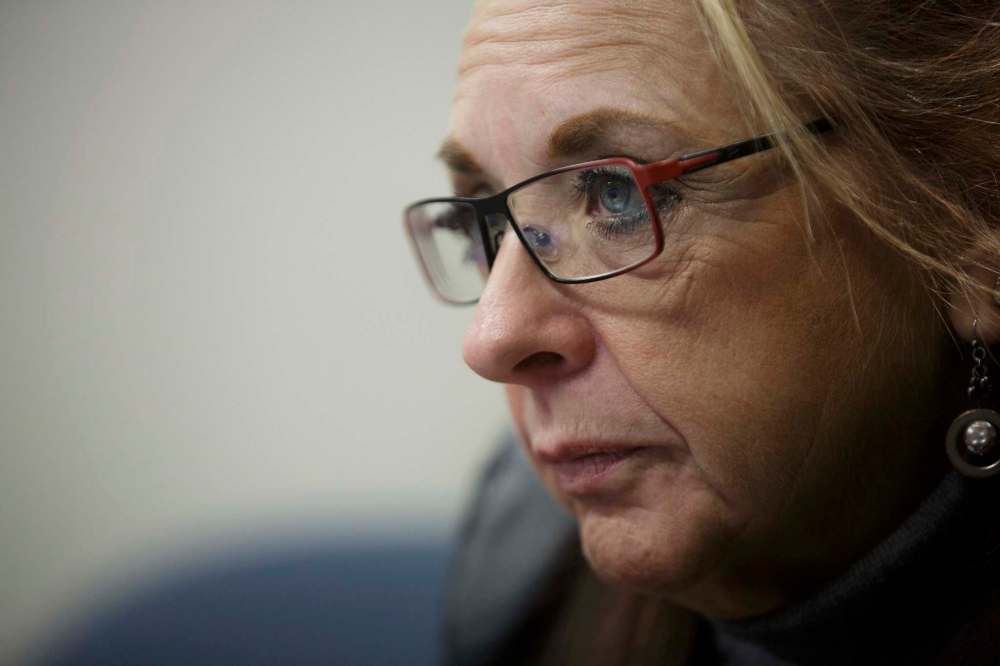Unfair labour charge filed
Union alleges province ordered 26 health-care employers not to bargain
Advertisement
Read this article for free:
or
Already have an account? Log in here »
To continue reading, please subscribe:
Monthly Digital Subscription
$0 for the first 4 weeks*
- Enjoy unlimited reading on winnipegfreepress.com
- Read the E-Edition, our digital replica newspaper
- Access News Break, our award-winning app
- Play interactive puzzles
*No charge for 4 weeks then price increases to the regular rate of $19.00 plus GST every four weeks. Offer available to new and qualified returning subscribers only. Cancel any time.
Monthly Digital Subscription
$4.75/week*
- Enjoy unlimited reading on winnipegfreepress.com
- Read the E-Edition, our digital replica newspaper
- Access News Break, our award-winning app
- Play interactive puzzles
*Billed as $19 plus GST every four weeks. Cancel any time.
To continue reading, please subscribe:
Add Free Press access to your Brandon Sun subscription for only an additional
$1 for the first 4 weeks*
*Your next subscription payment will increase by $1.00 and you will be charged $16.99 plus GST for four weeks. After four weeks, your payment will increase to $23.99 plus GST every four weeks.
Read unlimited articles for free today:
or
Already have an account? Log in here »
Hey there, time traveller!
This article was published 06/01/2018 (2898 days ago), so information in it may no longer be current.
The Manitoba Government and General Employees’ Union has filed unfair labour practice charges with the Manitoba Labour Board against 26 employers in the public health-care system.
The MGEU is alleging the employers are under government orders to refuse to bargain for new collective agreements under Bill 28’s wage-control provisions.
Most of the 26 bargaining units and their 7,500 workers have been without collective agreements since March 2017.

“It’s not fair for health-care workers to keep working with expired contracts,” MGEU president Michelle Gawronsky said Friday.
The union served official notice months ago that the bargaining units were ready to negotiate, Gawronsky said.
“We asked for dates, sent letters asking for dates. They keep telling us they can’t come to the table. They won’t say why. We know all of the health-care bargaining has been left on hold,” she said.
An aide to Health Minister Kelvin Goertzen said Friday night that the minister cannot comment because the province is not the employer and has not been served with the union’s notice.
The provincial government has passed Bill 28, but not proclaimed it. The bill imposes wages freezes in the first two years, a maximum of 0.75 per cent in the third year and one per cent in the fourth year on new collective agreements in the public sector. About 120,000 workers are affected.
The government, similarly, has passed but not proclaimed Bill 29, which forces 182 local health-care bargaining units across Manitoba to merge into about three dozen regional bargaining units.
Bill 29 has nothing to do with bargaining and shouldn’t be holding up the process, Gawronsky said.
“I can guess where their instruction is coming from; I know where the mandate is coming from.”
The employers have seven days to file a response to the Manitoba Labour Board, Gawronsky said.
“Most of them are hospitals and personal care homes. They deserve better than to be ignored,” she said. “It’s just chaos out there in the health-care system.”
If the government wants health-care employers to make new deals that include wage controls, they can make their cases to their workers, but it has to be across a bargaining table, the MGEU president said.
The MGEU is one of 25 unions that have formed a coalition, led by the Manitoba Federation of Labour, which has launched a court challenge alleging Bill 28 is unconstitutional. An injunction application to block Bill 28 pending that legal action will be heard in court at the end of May.
Meanwhile, the University of Manitoba and the U of M Faculty Association are awaiting a labour board ruling on an unfair labour practice charge related to Premier Brian Pallister’s wage controls.
The U of M told a labour board hearing last summer it had obeyed orders from the provincial government in October 2016 not to tell the faculty association during bargaining that the government was imposing a wage freeze on the university. That was months before Pallister openly acknowledged wage controls were coming.
The faculty association went on a three-week strike in November 2016 for improvements in working conditions, and filed charges of bargaining in bad faith against the university for not divulging it was under a wage-freeze order.
The university has said if the labour board rules in the union’s favour, that could put the U of M’s last wage order prior to the freeze — seven per cent over four years — back on the table, which would cost the U of M $9.4 million.
nick.martin@freepress.mb.ca
History
Updated on Sunday, January 7, 2018 12:40 PM CST: Updates story after MGEU revised info: contracts expired in March 2017


